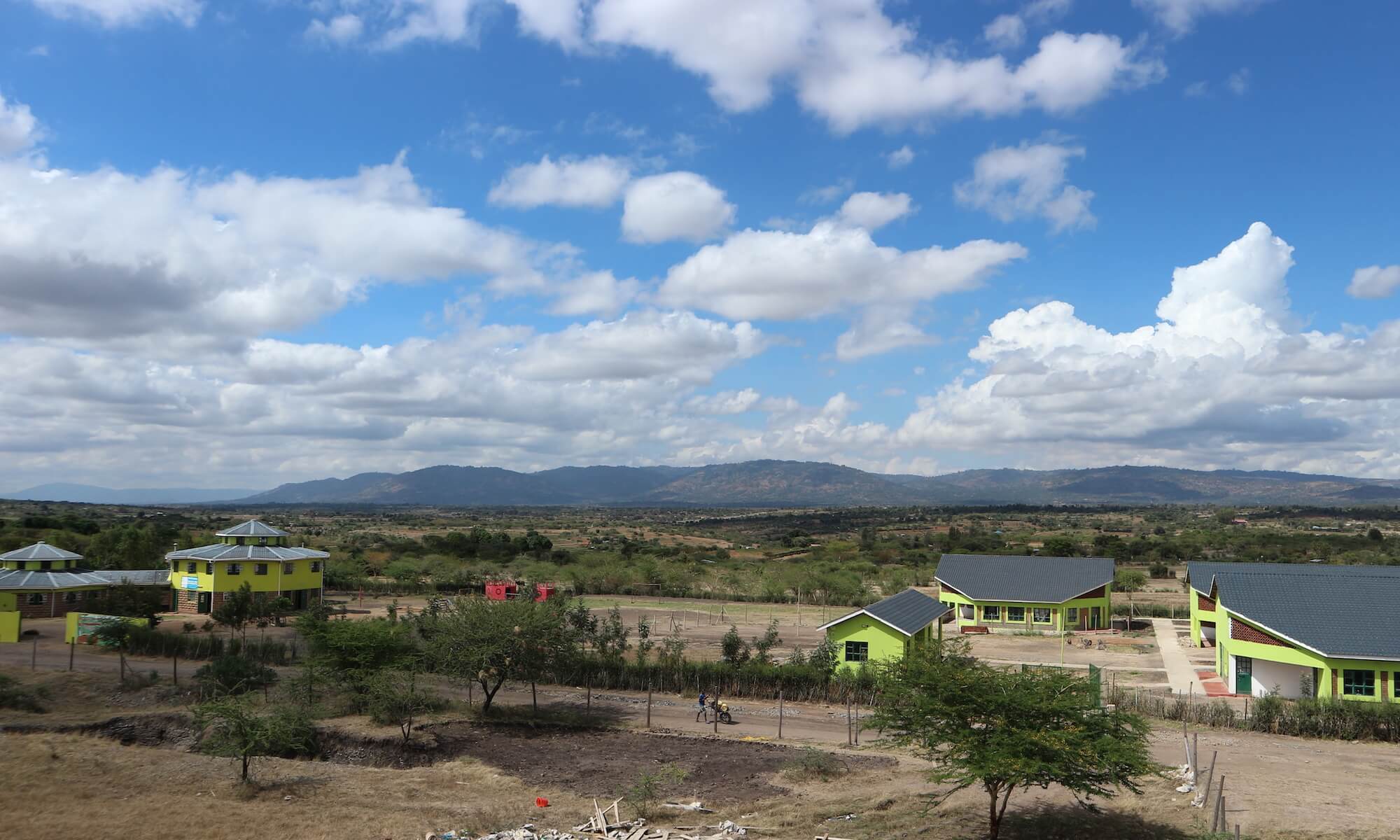The holidays are over and to the children’s dismay, school has started again. In the first week, the children take tests called “Opening Exams,” where their knowledge is assessed right after the holidays. I find it unusual that even in the eighth grade, the exams consist of multiple-choice questions. I believe it would be better to have open-ended questions that allow the children to express their own opinions.
After the first week, the usual routine continues. The kids come home from school in the late afternoon and start doing their homework, with our support if needed. Afterward, they have free time, during which they enjoy listening to music, dancing, playing football or making use of our playground, which is now located on the MCC premises.
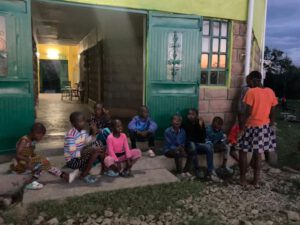
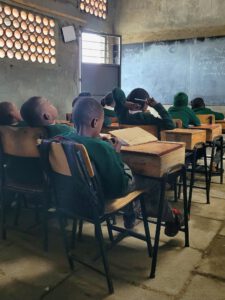
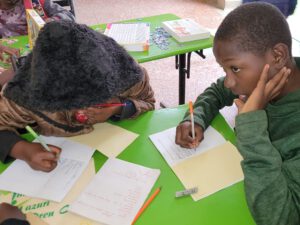
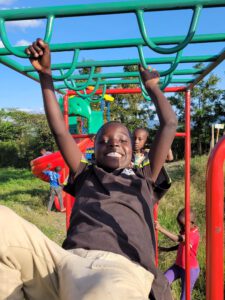
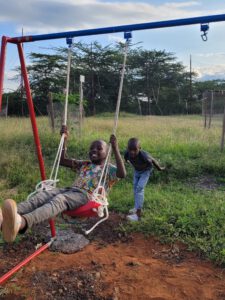
The rainy season ended a few weeks ago and it’s getting hotter, with the soil becoming drier. I can clearly see the change in nature, which has become browner and dustier.
On our shamba (farm), the cultivated vegetables and fruits are growing visibly. The banana season has begun and we will have watermelons in a few weeks as well. Maize, sukuma wiki (kale-like greens) and beans, which are the main ingredients for meals, are regularly harvested and prepared at the children’s home. To secure the plant yields during the dry season, the organization has already financed a second 10,000-liter water tank and the foundation for it is a work in progress.
I also tried out a new experiment at the shamba. Using zucchini seeds, I first grew small seedlings here at the children’s home, and then planted them together with Farmer Boniface at the shamba. Now, it’s a matter of waiting and hoping for the experiment to be successful.
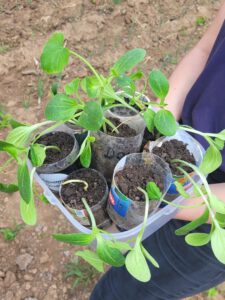
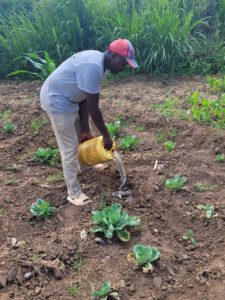
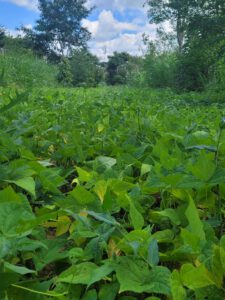
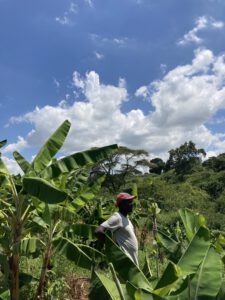

Movie night is always on the agenda for the kids on weekends. To sweeten the evenings, we prepare snacks before the movie starts. Once, we made a large batch of popcorn with the kids and it disappeared in no time. On another day, we tried making sweet potato chips. However, since we are not accustomed to cooking with fire, preparing the chips took much longer than expected, so we ended up enjoying them after the movie, rather than during.
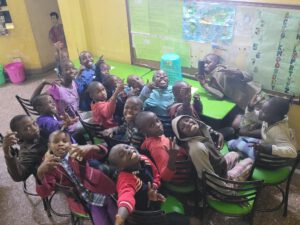
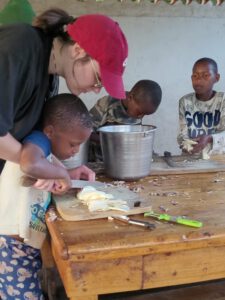
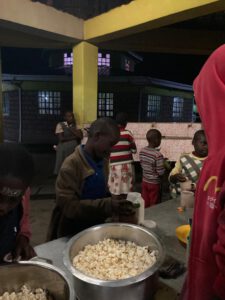
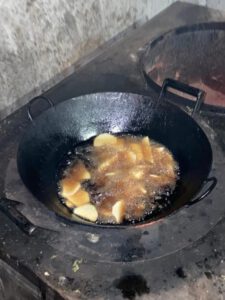
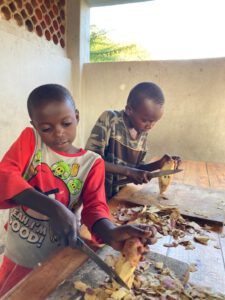
At the end of March, the social worker Mercy and the secondary school principal Nicholas visited Germany for ten days, where they visited several schools and children’s homes. (More details in the current newsletter 02/2023 newsletters – Hand in Hand for Kenya e.V. (4kenya.info) )They shared their experiences with the staff at the children’s home and the teachers at the schools, giving them a glimpse into their trip. The report was also interesting for me, as it made me aware once again of the differences between schools and childre’s homes in Germany and Kenya. The main difference that struck both of them the most was the passion and discipline that German teachers put into their profession, resulting in a completely different style of teaching compared to here. In Germany, teaching is characterized by collaboration between teachers and students, rather than solely relying on teacher lectures, as it is the case here.
At the end of March, the social worker Mercy and the secondary school principal Nicholas visited Germany for ten days, where they visited several schools and children’s homes. (More details in the current newsletter 02/2023 newsletters – Hand in Hand for Kenya e.V. (4kenya.info) )They shared their experiences with the staff at the children’s home and the teachers at the schools, giving them a glimpse into their trip. The report was also interesting for me, as it made me aware once again of the differences between schools and childre’s homes in Germany and Kenya. The main difference that struck both of them the most was the passion and discipline that German teachers put into their profession, resulting in a completely different style of teaching compared to here. In Germany, teaching is characterized by collaboration between teachers and students, rather than solely relying on teacher lectures, as it is the case here.
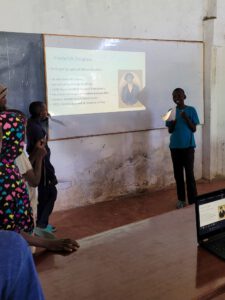
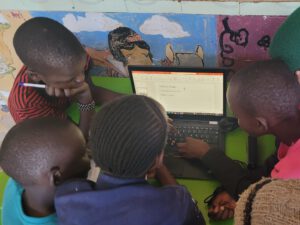
By now, I had attended church with the children a few times on Sundays. The previous worship services were accompanied by several singing and dancing performances by both the children and adults, all set to loud music. Unfortunately, as a German, it is difficult for me to follow the service as it is conducted entirely in the local Kikamba tribal language.
This time, the worship service was slightly different. Instead of the usual three hours, it lasted four. Towards the end, not only the little ones but also the adults had dozed off. And when a coal auction took place shortly before the end, I wondered whether it was still part of the worship service or if it had transitioned into another segment. This situation was very unusual for me and I cannot imagine something like that happening in Germany.
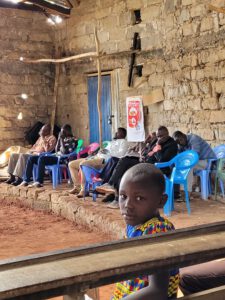
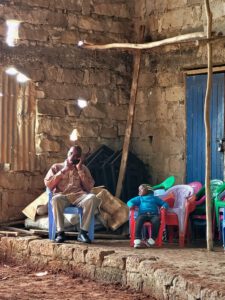
Britta
